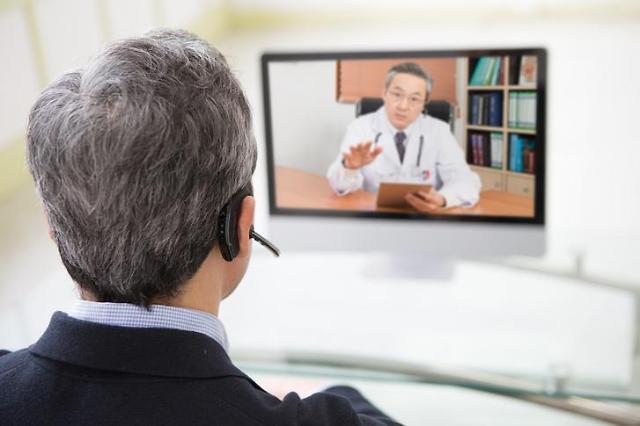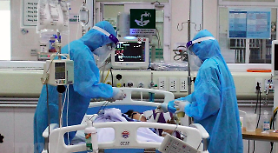
[Gettyimages Bank]
Dozens of South Korean workers at overseas construction sites have tested positive for COVID-19. Three have died before being transported back to their homeland. Health and Welfare Minister Park Neung-hoo said the government would set up an intra-ministry system to bring back serious patients staying abroad by using chartered or special planes.
"Most overseas construction workers are in countries with poor medical conditions. Because they share living space with foreigners, there is a high risk of infection and the spread of COVID-19," Park said told reporters on July 5. Life Semantics, a digital healthcare platform developer, and Inha University Hospital have secured a two-year permit to provide non-contact medical services to South Korean staying abroad.
Life Semantics has established a cloud service equipped with artificial intelligence and information management technology to store, analyze and utilize personal health records. The company has formed a consortium with three major hospitals -- Seoul St. Mary's Hospital, Seoul National University Bundang Hospital and Asan Medical Center -- to commercialize telemedicine services.
"It is meaningful in that overseas Koreans who have been unable to enter the country due to various difficulties due to COVID-19 are now able to be protected by the domestic medical system," Life Semantics CEO Song Seung-jae said in June when his company secured government approval to provide a service platform.
"Non-contact care is a means of supplementing face-to-face care," Song said. "Even foreign countries that allow remote medical care do not have a standardized system. We will try to establish a global standard for non-face-to-face medical services and help South Korea lead the non-face-to-face medical service system."
Inha University Hospital has established an online medical support program that can efficiently manage and utilize personal medical data linked directly to electronic medical records (EMRs), which are transferable across different doctors and specialists.
Telehealth is a service via electronic information and telecom technologies that allow long-distance contact, care, advice and monitoring. Big hospitals showed a positive response, but doctors warned that telemedicine could lead to the collapse of small and medium-sized hospitals. Since South Korea introduced its first pilot program for telehealth in 2000, any attempt to revise a related medical law has failed to win parliamentary approval mainly due to strong opposition from doctors.
Copyright ⓒ Aju Press All rights reserved.



